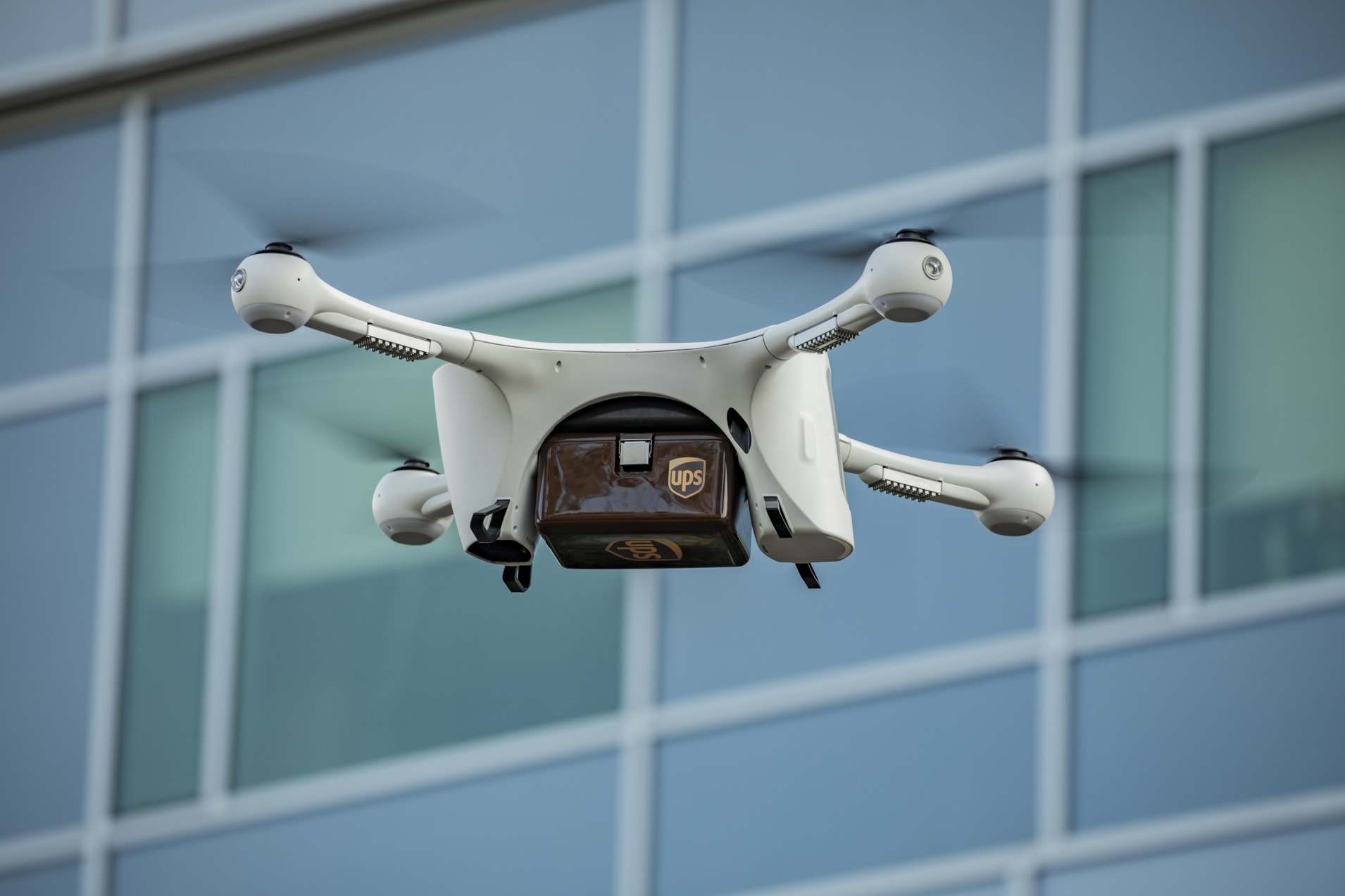REDWOOD LOGIN
Redwood PortalLTL
SCS
SCS Support
Rockfarm
 Photo: UPS
Photo: UPS
The wait is over – drone deliveries of prescription medication has finally been accomplished in the United States.
According to a press release and multiple reports published online back in November, a collaboration between United Parcel Service (UPS) and their Flight Forward program and CVS Health Corp completed a prescription medication delivery to the front lawns of a patients' home, as well as a delivery to a retirement facility. The deliveries occurred in North Carolina, one of the only US states that have approved local line-of-sight drone deliveries.
The actual packages were roughly the size of shoeboxes, weighing in at less than 10 pounds. These packages were lowered to the ground via cable while the drone maintained a flight level about 20-feet in the air. The drone itself is an M2 drone system developed by Matternet. The delivery was completed by UPS’s Flight Forward division and introduces a real-world test of drone tech and its impact on the speed of medical supply deliveries.
According to UPS and CVS representatives, the deliveries were the first of their kind under a program approved by the U.S. Federal Aviation Administration (FAA). Federal Regulators are still working on details as to how these unmanned drones will operate through United States airspace in the future, with expected guidelines to be determined sometime in 2021.
Until then, limited testing in approved airspace will continue. This limited testing will allow drone tech to continue paving the way to nationwide drone delivery of lightweight, yet potentially life-saving medication while awaiting full approval. If all goes well and continues at the same pace, this will provide for a smooth transition into this innovative space.
“This drone delivery, the first of its kind in the industry, demonstrates what’s possible for our customers who can’t easily make it into our stores,” said Kevin Hourican, president of CVS Pharmacy. “CVS is exploring many types of delivery options for urban, suburban, and rural markets. We see big potential in drone delivery in rural communities where life-saving medications are needed and consumers at times cannot conveniently access one of our stores.”
The flights originated from a CVS store located in Cary, North Carolina. The drones flew autonomously but were monitored by a remote operator who could intervene in case of emergency or erratic flight. Once the drone arrived on site, a cable lowered the package to the ground, where the individual removed the package from a container.
A second delivery was a real-world challenge, providing delivery to an individual with limited mobility who was unable to pick up their medication at the CVS facility.
UPS and CVS have collaborated to develop a series of drone-based delivery services that take advantage of the convenience, speed, and accuracy of unmanned aerial vehicles. The UPS Flight Forward division was the first company that was approved to operate a drone airline as outlined by Part 135 Standard Certification.
Since March 2019, the combined partnership has completed more than 1,500 deliveries that have generated revenue – with nearly 8,000 samples. Drone deliveries have also been made to WakeMed Hospital in Raleigh, NC.
This test program introduces several benefits of delivering medication, vaccines, and other life-saving supplies via drone delivery.
Here are a few general benefits that drone delivery of medication offers North American consumers.
The UPS and CVS partnership is not exclusive to this industry. In fact, Wing, a drone operator owned by Google parent Alphabet Inc has partnered with Walgreens and FedEx Corp to expand a home delivery pilot program in Christiansburg, Virginia.